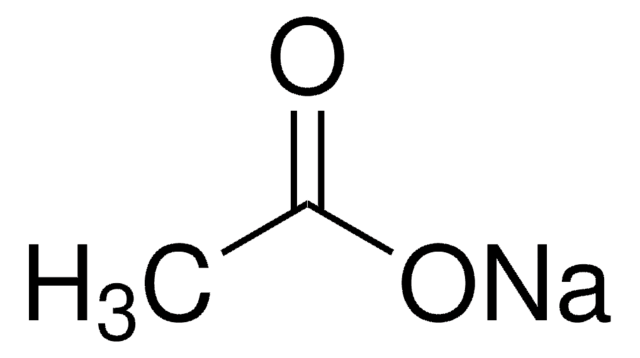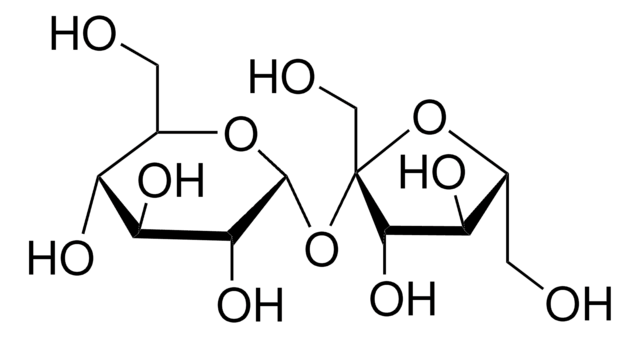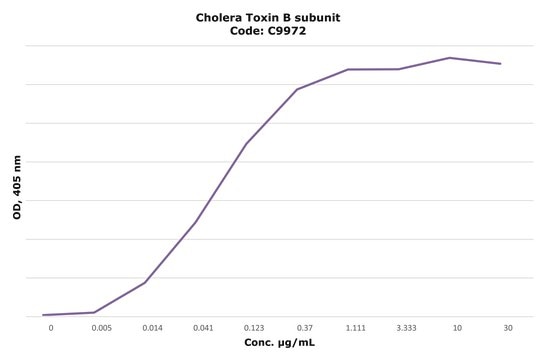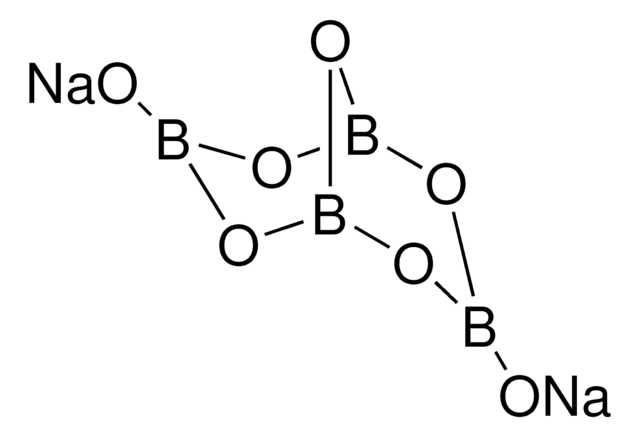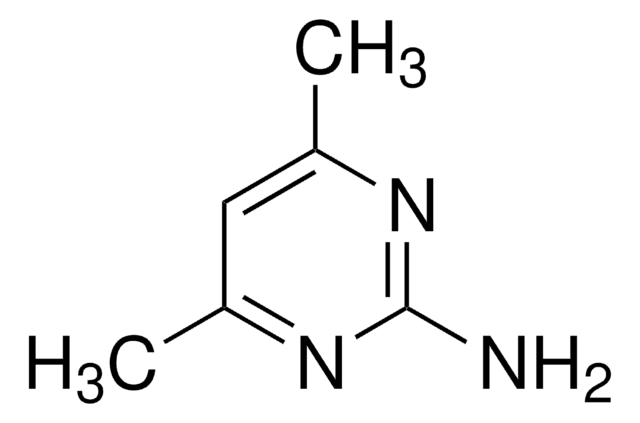S7670
Sodium acetate trihydrate
BioXtra, ≥99.0%
Synonym(s):
Acetic acid sodium salt trihydrate
About This Item
Recommended Products
product line
BioXtra
Quality Level
assay
≥99.0%
form
powder
autoignition temp.
1112 °F
impurities
≤0.0005% Phosphorus (P)
≤0.1% Insoluble matter
pH
8.5-10 (25 °C, 408 g/L)
solubility
H2O: 1 M, clear, colorless
anion traces
chloride (Cl-): ≤0.001%
sulfate (SO42-): ≤0.002%
cation traces
Al: ≤0.0005%
Ca: ≤0.0005%
Cu: ≤0.0005%
Fe: ≤0.0005%
K: ≤0.005%
Mg: ≤0.0005%
NH4+: ≤0.05%
Pb: ≤0.001%
Zn: ≤0.0005%
SMILES string
O.O.O.[Na+].CC([O-])=O
InChI
1S/C2H4O2.Na.3H2O/c1-2(3)4;;;;/h1H3,(H,3,4);;3*1H2/q;+1;;;/p-1
InChI key
AYRVGWHSXIMRAB-UHFFFAOYSA-M
Looking for similar products? Visit Product Comparison Guide
Related Categories
Application
- as a component of citrate-acetate buffer for hydroxyproline assay
- to prepare buffered salt solutions for ultrafiltration experiments
- to prepare acetate buffer solution for the electrochemical synthesis of indium tin oxide/gold nanoparticles/nickel oxide/poly(Pyrrole-N-propionic acid) (ITO/GNPs/NiO/poly(PPA)) electrode
Biochem/physiol Actions
Other Notes
Storage Class
11 - Combustible Solids
wgk_germany
WGK 1
flash_point_f
Not applicable
flash_point_c
Not applicable
ppe
Eyeshields, Gloves, type N95 (US)
Choose from one of the most recent versions:
Certificates of Analysis (COA)
Sorry, we don't have COAs for this product available online at this time.
If you need assistance, please contact Customer Support.
Already Own This Product?
Find documentation for the products that you have recently purchased in the Document Library.
Customers Also Viewed
Our team of scientists has experience in all areas of research including Life Science, Material Science, Chemical Synthesis, Chromatography, Analytical and many others.
Contact Technical Service